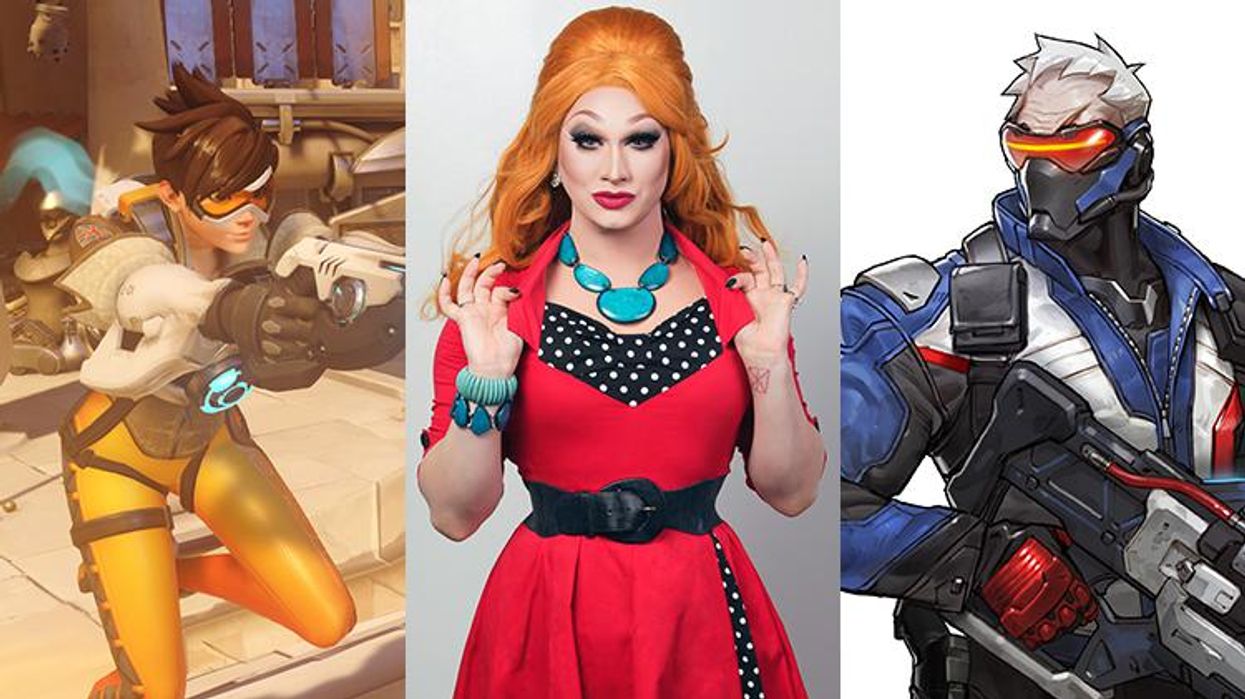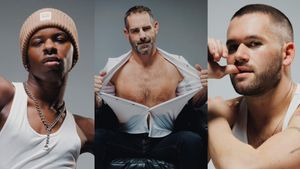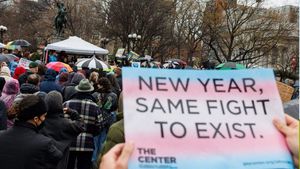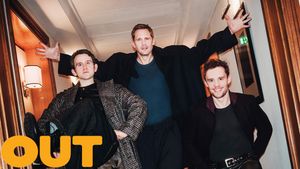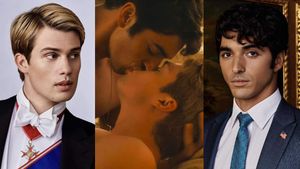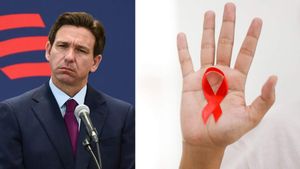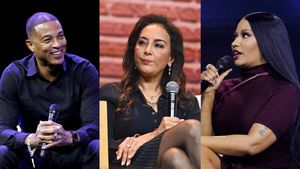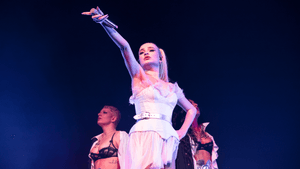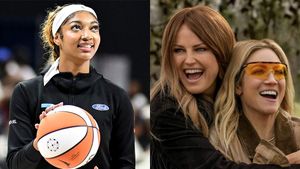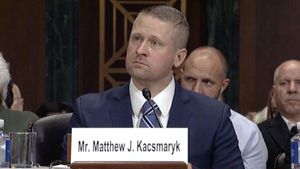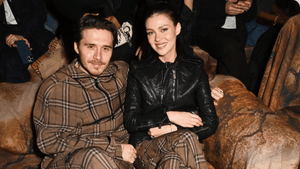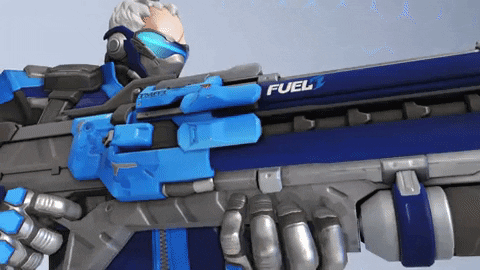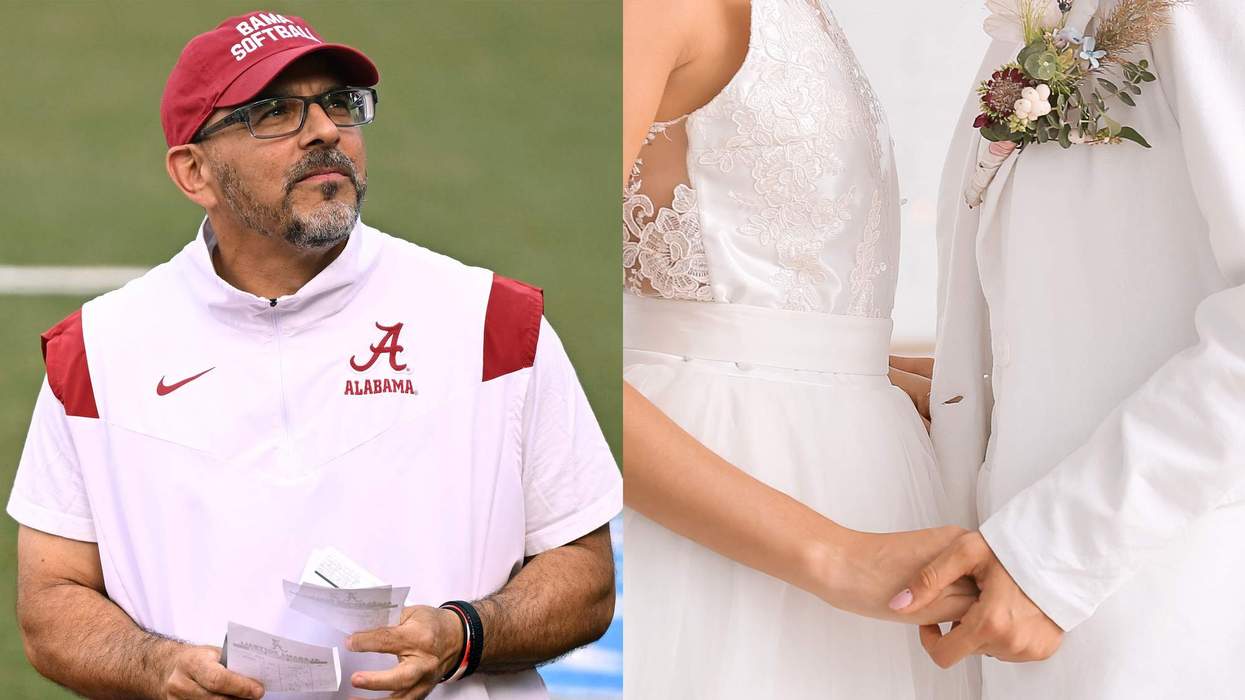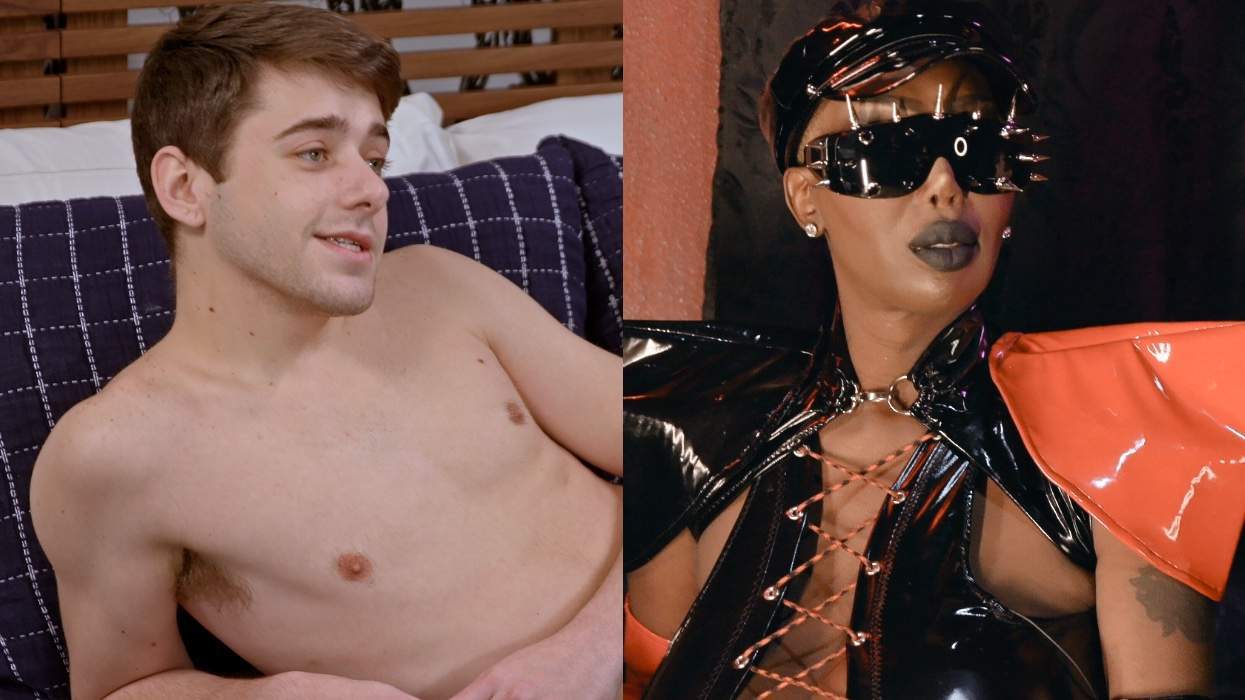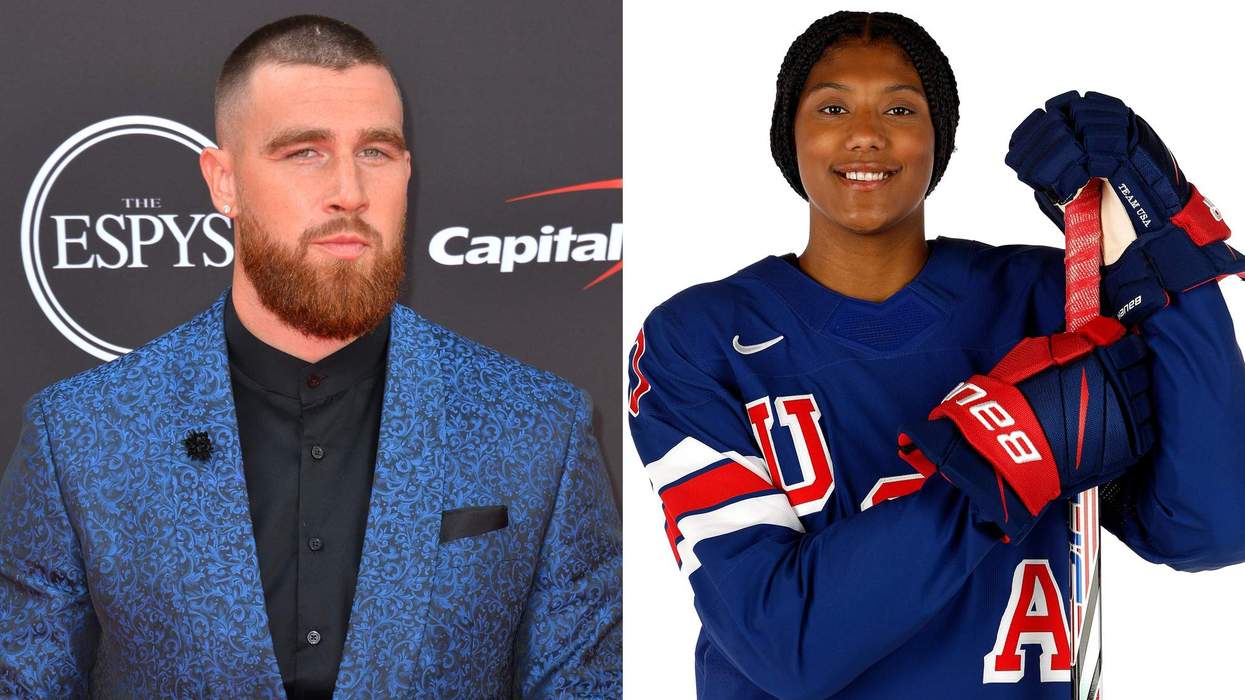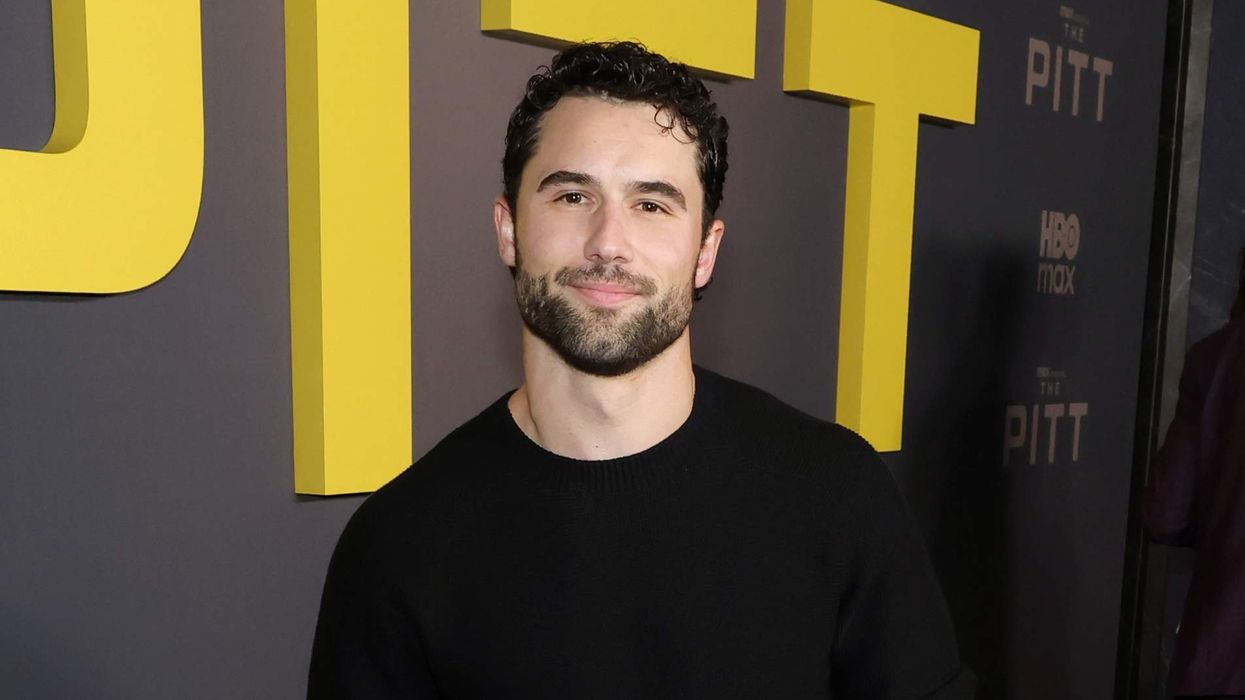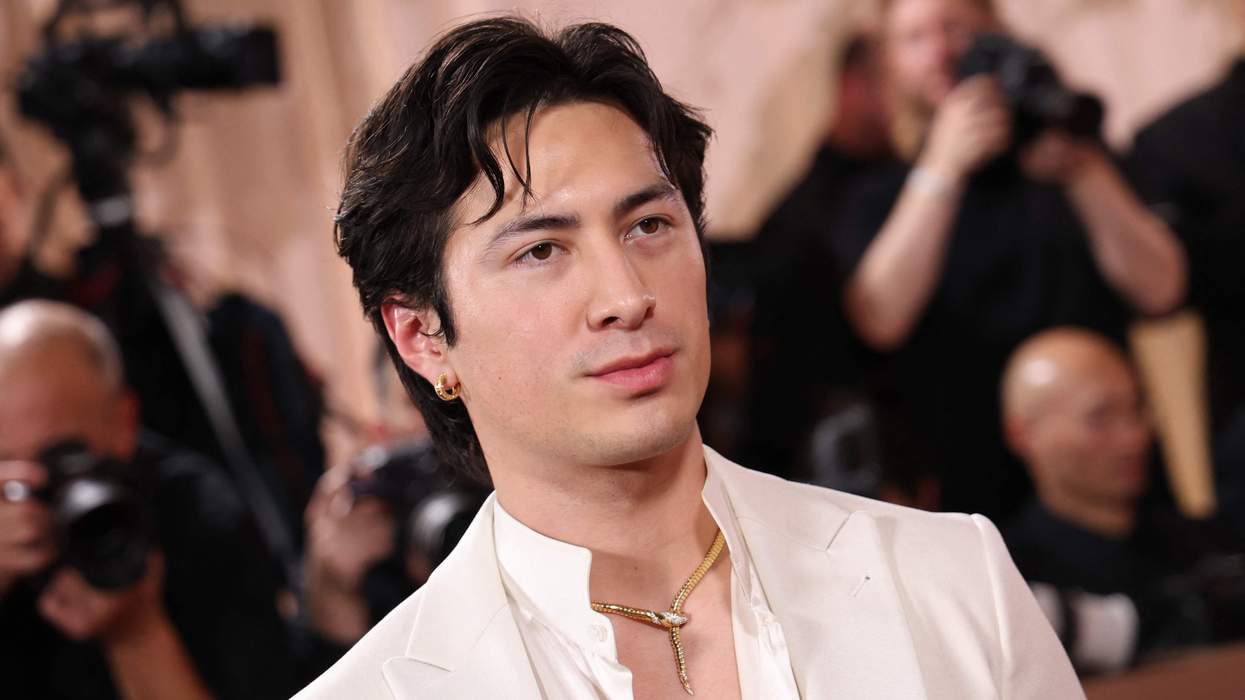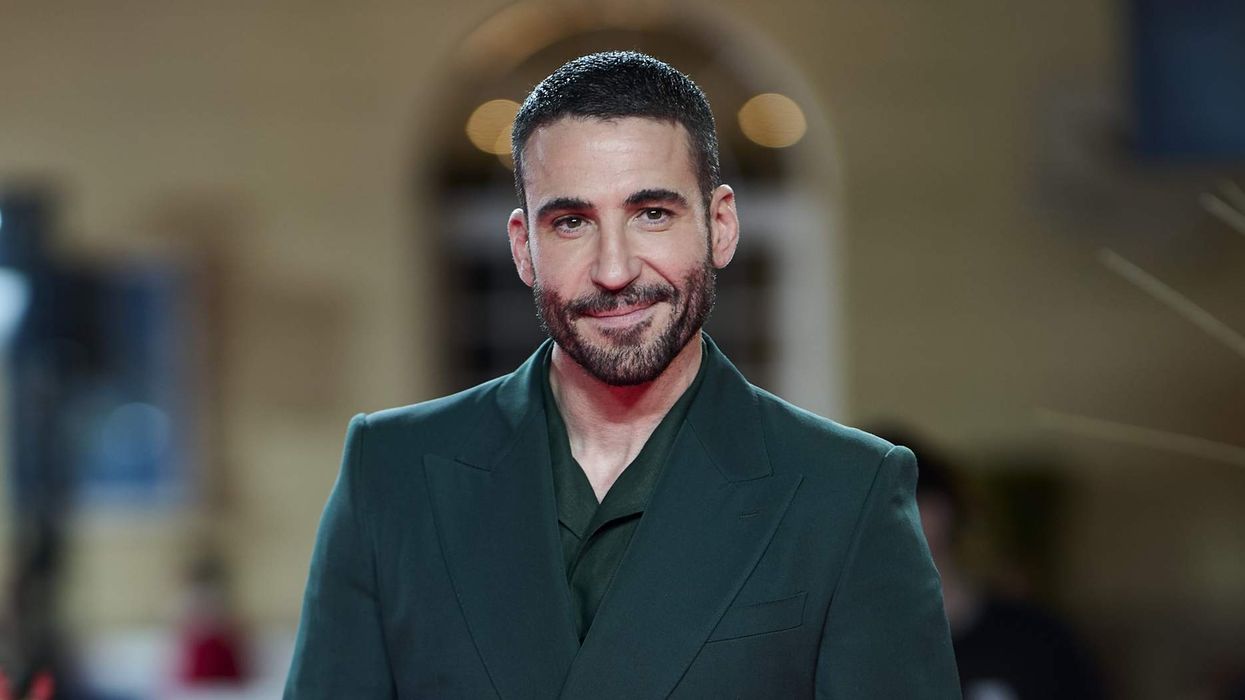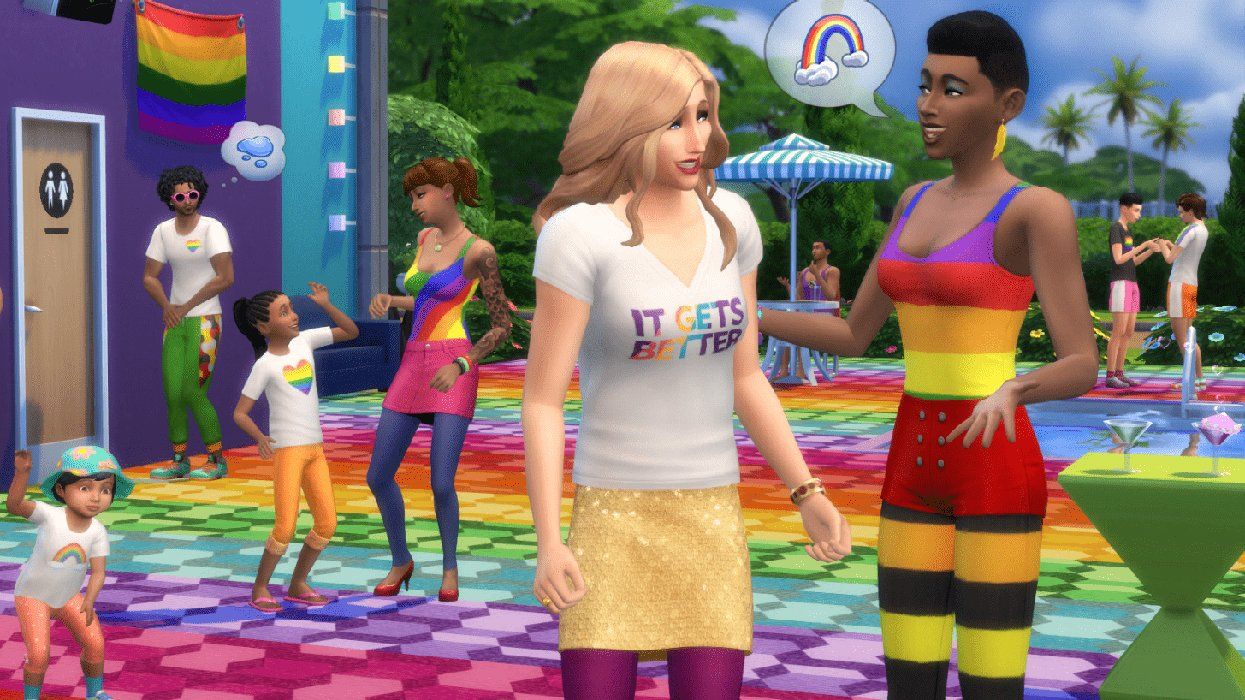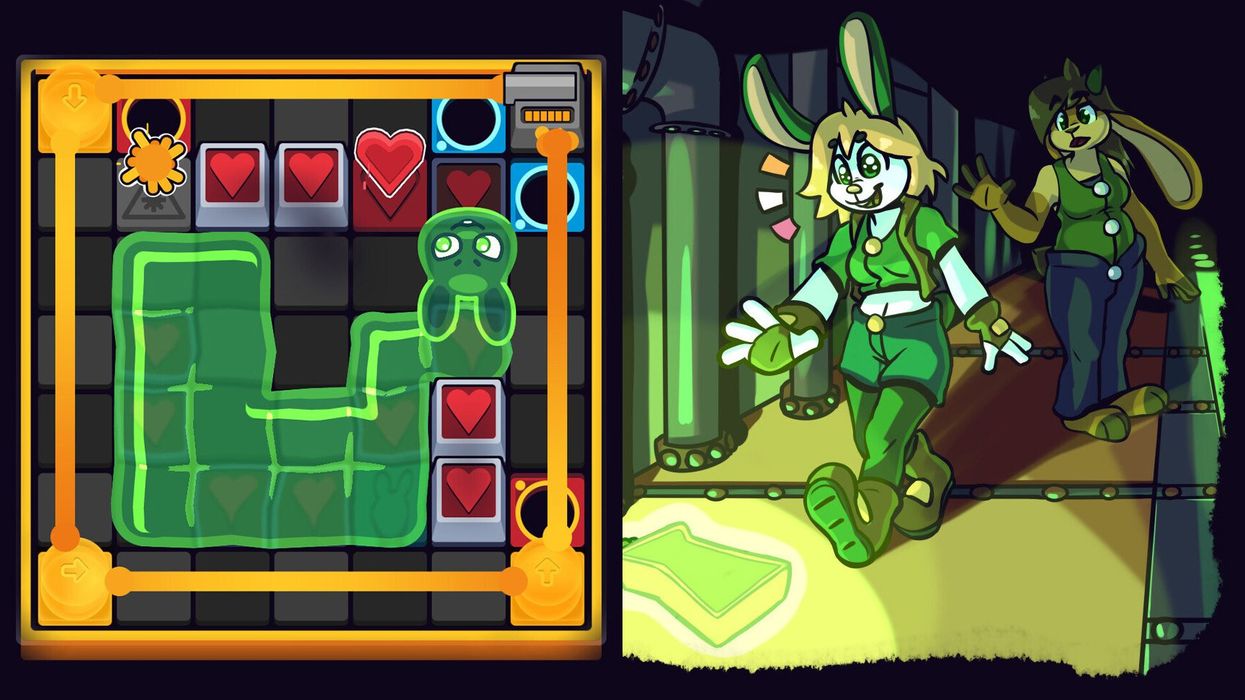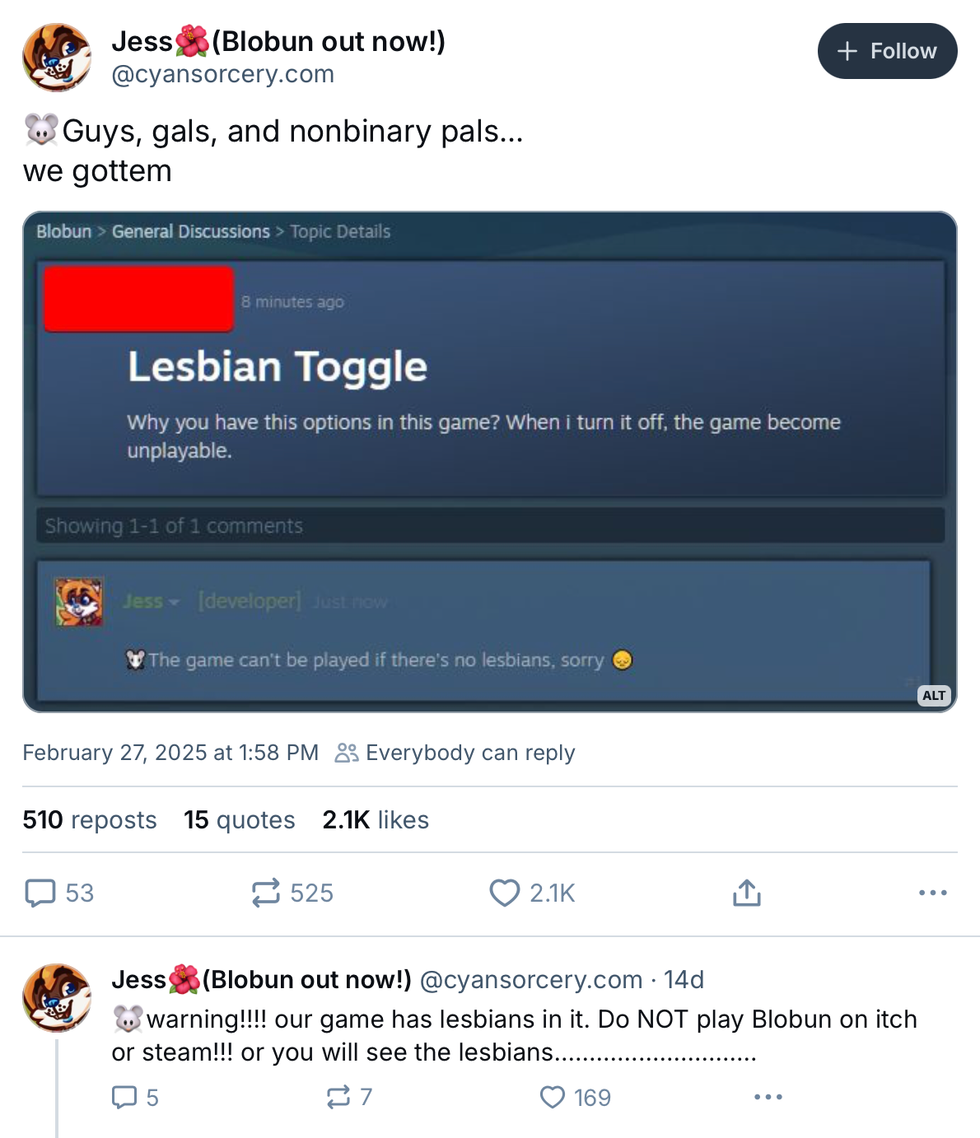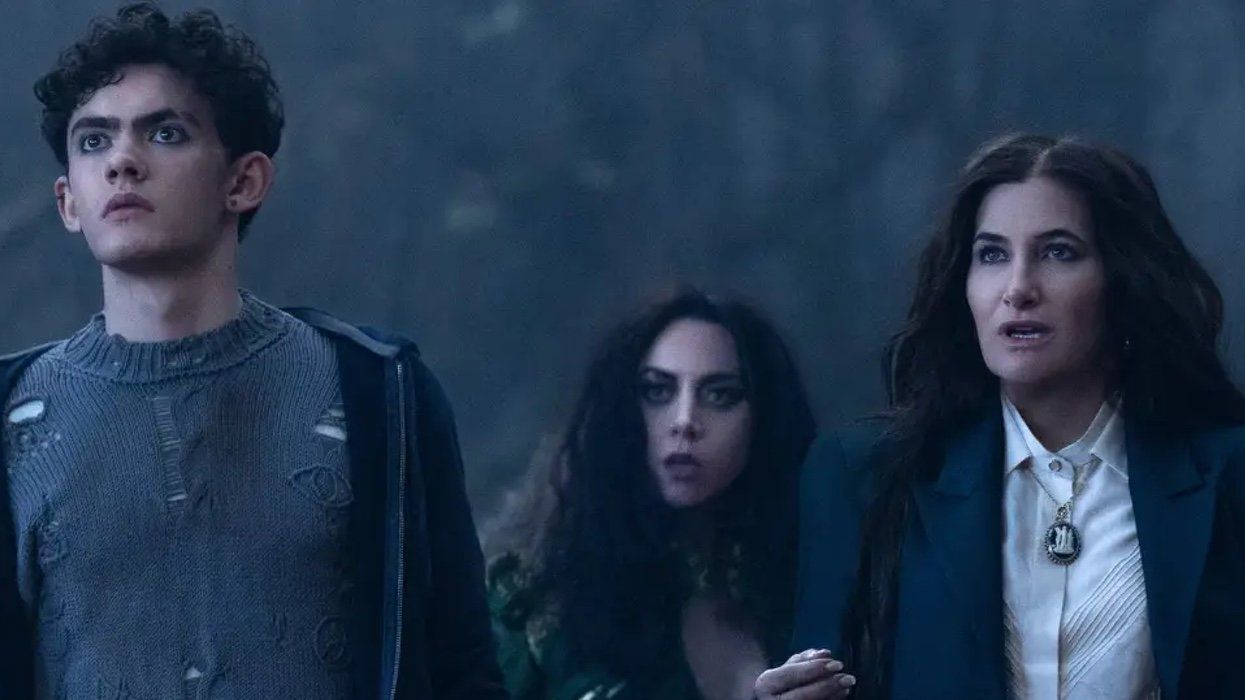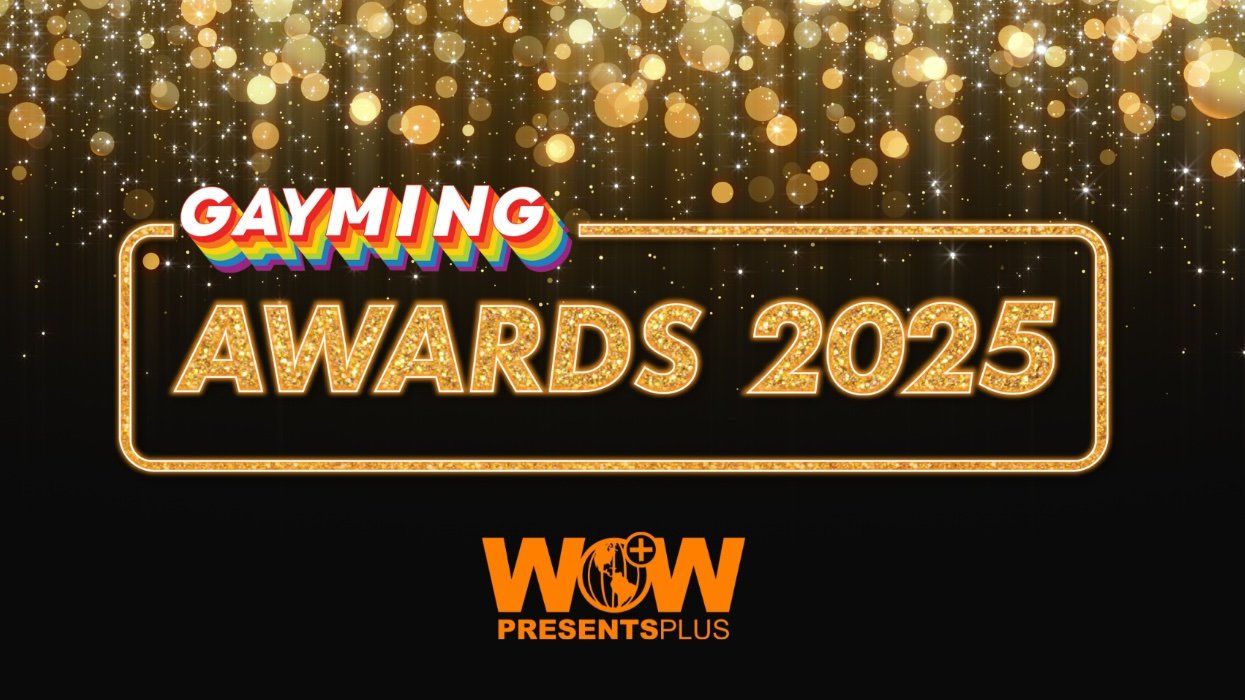When you play a video game, you are quite literally inserting yourself into a character and exploring the world through their eyes. For many young LGBTQ+ folks, games are one of the first opportunities we have to openly play around with gender and sexuality in a way we might not be able to in real life. That includes RuPaul's Drag Race royalty Jinkx Monsoon.
"I've been playing video games as far back as I can remember," Monsoon tells PRIDE. "It really became my favorite escape away from the heteronormative world that I lived in. I was never big into sports, surprise, surprise."
For instance, someone closeted could explore their suppressed feminity as Princess Peach in Mario games or take out their more aggressive tendencies as Kratos in God of War.
"When you're playing alone, you don't have to tell anyone else that you identify most with the female character," Monsoon points out from their own experience. "As a trans femme person, I always liked video games for the fact that I may have to try to pass as a guy in my day to day life when I was younger" but "my gender expression was expressed through my video games and through getting to play these characters."
When we think about the diversity at the time, "the options were always so limited." Even when there were female characters, they were often sidelined or relegated to healers.
That's beginning to change. As a wider variance of female and LGBTQ+ characters pop up in games like Overwatch, "it was the first time I realized, 'oh, I've never seen queer characters in games.'" It's an eye-opening moment for many queer gamers. "It was kind of, 'oh, wait a second, why haven't we been included in this?'"
There were queer-coded characters that many LGBTQ+ folks latched on to over the years. "The gayest thing I saw in video games for the longest time were always the villains, and it was always their femininity kind of made them weird or strange. Now, to see characters be designed and come out as queer and not just that, but specifically in Overwatch for the poster character, for the face of the game, Tracer, to be a queer character," it marks a massive shift in the industry.
Blizzard Games is responsible for many of these new characters. “Our teams have developed some of the most diverse characters from any video game publisher in the world," Jen Oneal, Activision Blizzard’s newly announced LGBTQ Network Sponsor and EVP of Development at Blizzard Entertainment, tells PRIDE. "Representation matters, and among many firsts our teams are proud to have created the fan-favorite Symmetra from Overwatch, our first playable character who is on the autism spectrum; Pelagos, the first openly transgender character in World of Warcraft; Tracer from Overwatch, the first LGBTQ character featured on a Blizzard game cover; Varden Dawngrasp, Hearthstone’s first openly non-binary character; and more recently in 2020, we featured Leo Baker in Tony Hawk’s Pro Skater 1+2, the first non-binary playable character in a sports game.”
Online gaming is a stereotypically "masculine" space, especially when it comes to first-person shooters, and even though women and LGBTQ+ people are abundant within them, these spaces can be hostile environments. A study released earlier this year reported that 88% of openly LGBTQ+ gamers are harassed for their sexuality, among many more upsetting statistics.
"I do still witness and experience that toxicity with random people all over the world playing one game together," says Monsoon. "I definitely feel there's been a decrease in specifically queer attacks on queer people in those group chat experiences. Lately the assholes on the game, basically just say, 'You suck at the game,' but I haven't been hearing people call each other the F-word, I haven't been experiencing the same level of toxicity about people's personal lives in the game."
Monsoon believes LGBTQ+ inclusion in these games, specifically Overwatch's inclusion of Tracer and Soldier 76, is "sending a message to straight male gamers that they are not the only people who play video games."
"Soldier 76 came out and for such a masculine male archetype to also be queer, I just felt it was such a victory for queer gamers. I also loved thinking about all the straight people who probably just assumed these characters' sexual identities. It probably ruffled some feathers and I loved it. I f*cking loved it. I hope some straight gamers, especially the straight gamers on the game chat, calling me the F word because I didn't heal them quickly enough, I hope it ruffled your feathers that soldier 76 is on my team."
Games can also be a place for education. Monsoon recalls an NPC in Dragon Age: Inquisition who is transgender and if you choose to ask them invasive or inappropriate questions, "the trans person puts you in your place."
"Say you are a young straight boy who's like, 'oh, this is weird,' and asks this trans character, 'Who were you before this?' And the trans character says, 'I've always been this person. And I found the people who allowed me to be myself without judgment...' like to see that conversation play out in a video game, just blew my mind."
"For so long, I just thought that games were intentionally catering to straight white men. And to see this game, give you the option of asking the wrong questions so that the trans character can educate you," it's powerful.
With all of this recent progress, Monsoon is "optimistic and excited and hopeful for the future" of LGBTQ+ representation in video games. She's "hoping, I'm crossing my fingers, that maybe there will be even more gender representation. I think Overwatch would be the game to include a trans character or a non-binary character, and further expand their inclusivity in the game."
This expands far beyond just Overwatch. Monsoon "exclusively play[s] as female characters in games," she says. "I've actually kind of gotten to the point where I'm hard-pressed to play a game that these days that doesn't allow you to play as a female character."
But the future of video games seems to be character customization that doesn't focus on gender. Monsoon points to Sims 4, which "handled it so beyond anything I ever expected from a video game, but then why hasn't this been the standard the whole time? You literally can choose a 'male character' but they have a feminine-looking body. They can have any type of voice, any type of skin color. You can choose their clothing preference independent to what sex you chose for them. So you can create a fully male presenting character who prefers to wear female clothes. And that to me was just like, 'why hasn't this always been here?'"
This is the future gamers want, says Monsoon. "I want to feel like this character is an expression of me or at least I want to feel seen in the game. I want to feel like the game is welcoming me in to play.
"I don't know what's involved and the coding and the designing and all the behind-the-scenes work, but I really think the Sims 4 has really figured it out."
Monsoon acknowledges it's likely much more labor for programmers, to create alternative versions of characters and manage the ripple effects throughout the games, but "when you give players the option to really have agency over the representation they see in the game, you're inviting so many more players to play your game. So if it seems like a lot of work, oh, well, that's what you signed up for when you decided to design a video game."
